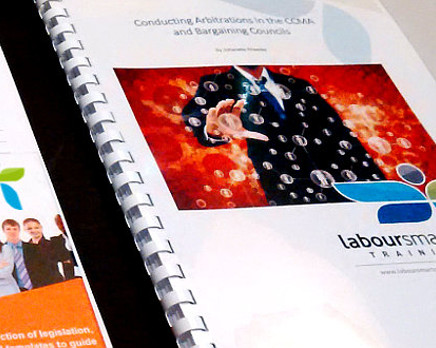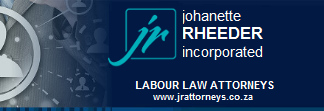- Course Name
- C8 - Investigating & Charging in Disciplinary Hearings
- Course Description
- Disciplinary hearings are a common occurrence in the workplace and part and parcel of the manager and shop steward’s daily functions. Employees and employers alike are entitled to fair labour practices and to escape a reinstatement or compensation award in the CCMA. This one days practical course should be attended by chairpersons, complainants, managers, HR and ER managers and practitioners, legal advisers, shop stewards, and union representatives.
- Duration
- 1 day
- Cost
- R2 950.00
Module 1 : Role of your disciplinary code and procedures
Module 2 : Schedule 8 – Code of conduct on misconduct
Module 3 : Reporting misconduct and role players
• How is misconduct reported?
• Who must investigate?
• Deciding on formal or informal procedure to follow.
• The role players in investigating the complaint.
Module 4 : Investigating the misconduct
• Collecting evidence – sources of evidence.
• Consulting witnesses and drafting statements for witnesses.
• Unwilling witnesses, hostile witnesses and intimidation of witnesses.
• Different types of evidence and how to collect this evidence: affidavits, statements, documentary evidence, real evidence, exhibits, voice recordings, video recordings, photographs etc.
• Admissibility, relevance and weight of evidence.
• Bundles of evidence – preparation and exchange.
• Safe keeping of evidence.
• The investigation diary.
Module 5 : Specific evidence
• Polygraph testing, alcohol and drug tests
• Traps, confessions, admissions
• Direct and circumstantial evidence, hearsay evidence, privileged evidence, expert evidence, opinion evidence, character evidence
• One on one cases.
Module 6 : Charging the employee
• Deciding on the charges,
• How to draft charges and how to charge an employee,
• Compounding and splitting of charges
• Pitfalls to avoid when charging employees
Module 7 : Preparing witnesses for the disciplinary hearing
• Consultation and preparation for evidence
• Assistance of witnesses
Module 8 : Examples and exercises
2025 © LabourSmart Training (Pty) Ltd. All Rights Reserved. | Developed and Hosted by Resolve Technology Solutions (Pty) Ltd | SEO by NextG



